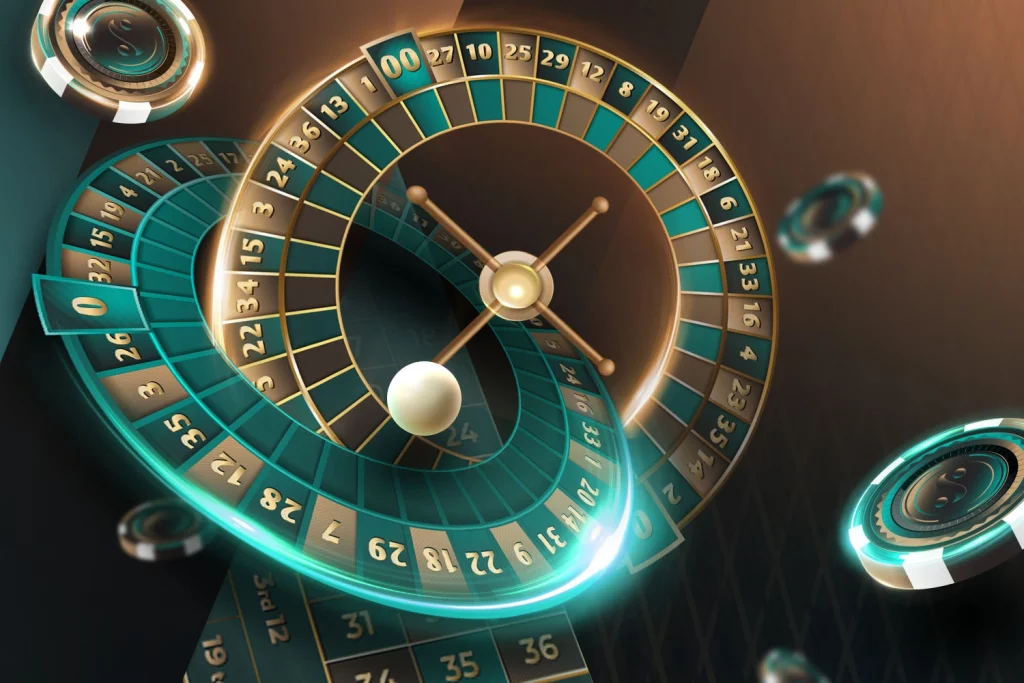Have you ever felt that certain rituals, like crossing your fingers or blowing on dice, could affect your gambling outcomes? Or do you believe you’re due for a big win after a series of losses? You’re not alone! Psychologists term this belief as the illusion of control.
In a groundbreaking study, Langer (1975) found that many people believe they can influence events purely based on chance. In the gambling world, this manifests in various ways. From thinking a pokie game is ‘hot’ to believing a lottery ticket with your birthday numbers has a higher chance of winning.

Understanding the Illusion of Control
The illusion of control is a captivating concept that significantly influences gambling behaviour. Originating from the works of Ellen J. Langer, the illusion of control refers to individuals’ tendency to believe they have more control over random events than they actually do. This phenomenon is closely related to perceived control and is often associated with cognitive biases, such as optimism bias, which makes people more optimistic than realistic.
In the realm of gambling, this illusion of control can lead to unrealistic perceptions of one’s ability to influence outcomes. Thus ultimately affecting gambling involvement and potentially contributing to problem gambling.
A noteworthy study was conducted by Delfabbro and Winefield (2000) titled “Predictors of Irrational Thinking in Regular Slot Machine Gamblers” significantly contributes to our understanding of the illusion of control in gambling. This concept reflects the inclination of individuals to believe they have more influence over random outcomes than they genuinely possess. The study highlights that certain factors or beliefs can strengthen this false impression. This is especially true when playing pokie machines.
Additionally, the research conducted by Dixon, MacLaren, Jarick, Fugelsang, and Harrigan in 2013, entitled “The Frustrating Effects of Just Missing the Jackpot: Slot Machine Near-Misses Trigger Large Skin Conductance Responses, but No Post-Reinforcement Pauses,” explores the psychological and physiological reactions to near-miss outcomes in slot machine gambling. This study offers crucial insights into how near-miss experiences amplify the illusion of control. Players react strongly to these almost-wins, thus further reinforcing their belief that they can influence future outcomes.
Origins, Definition, and Cognitive Biases
The concept of the illusion of control was first proposed by Ellen J. Langer, a prominent psychologist who has significantly contributed to the field of gambling studies. Simply put, the illusion of control is a cognitive bias that causes individuals to overestimate their power over events. This psychological phenomenon has been widely studied, yet the underlying mechanisms remain unclear.
Langer’s work has served as a cornerstone for the development of cognitive approaches to problem gambling. His work helped researchers understand the complex relationship between cognitive biases and gambling behaviour. Moreover, this has been further explored in international gambling studies. With occupational and organizational psychology insights contribute to a deeper understanding of the issue.
Cognitive Biases and Gambling
Cognitive biases, including gambling-related cognitions, play a significant role in shaping gambling behaviour and the perception of control (Goodie & Fortune, 2013). Research has shown that individuals with a stronger illusion of control are more likely to engage in superstitious thinking, which can contribute to problem gambling (Delfabbro & Winefield, 2000). The gambling-related cognitions scale can help assess these biases and identify potential risk factors for problem gambling (Toneatto et al., 1997).
An example is the belief that carrying a lucky charm or wearing a specific clothing item can influence a game’s outcome (Delfabbro & Winefield, 2000). This heightened perception of control can lead to overestimating the potential for success, resulting in riskier betting decisions and more severe gambling-related problems.
Factors Influencing the Illusion of Control
Several key elements shape the illusion of control in gambling. Let’s explore these:
- Probability: How likely it seems that you’ll win.
- Success-frequency: How often you win.
- Success-slope: The progression or decline in your winnings over time.
- Lack of information: Not knowing all the odds or how the game works.
- Choice and physical involvement: Feeling more in control when you make choices or physically engage, like picking your lottery numbers.
Interestingly, gender plays a role, too. Men generally exhibit more frequent everyday illusions of control than women. However, in gambling, this illusion affects all genders equally.

The Role of the Illusion of Control in Gambling Behavior
In the world of gambling, the illusion of control has a significant impact. It shapes how gamblers assess risks, make decisions, adopt superstitions, and even influences their likelihood of developing gambling-related issues.
Recognizing the significant impact of control beliefs in gambling empowers individuals. It helps them gain insight into their behaviour and enables them to minimize its harmful effects. Moreover, understanding this concept allows individuals to foster a healthier relationship with gambling by helping them identify response outcome independence.
Risk-taking and Betting Decisions
The illusion of control profoundly influences risk-taking and betting decisions in gambling. Individuals who believe they can influence the outcome of a random event are more likely to take on greater risks than those who acknowledge their lack of control (Dixon et al., 2013). This overconfidence can lead to excessive risk-taking behaviours, as individuals may not accurately assess the potential consequences of their bets.
Consequently, this can lead to a higher likelihood of developing a gambling disorder, also known as pathological gambling. Ultimately, this results in adverse outcomes for the individual and their loved ones.
Superstitious Beliefs and Rituals
The relationship between the illusion of control and superstitious beliefs and rituals in gambling is well-documented (Delfabbro & Winefield, 2000). Superstitious beliefs, such as carrying a lucky charm or wearing a specific item of clothing, can provide a sense of control over the outcome of a gambling event. These irrational beliefs can lead to heightened risk-taking and betting decisions, ultimately increasing the likelihood of problem gambling.
Grasping the bond between the illusion of control and superstitions enables gamblers to identify fallacies in their thinking, leading to more informed gambling decisions.
Impact on Problem Gambling
The illusion of control plays a significant role in the development and persistence of gambling-related issues. By overestimating their ability to influence the outcome of a gambling event, individuals may become more susceptible to problematic gambling behaviours (Clark et al., 2009). This cognitive bias can lead to a range of negative outcomes, including financial distress, emotional strain, and strained relationships.
Identifying the illusion of control’s effect on gambling and seeking necessary help is vital to prevent gambling-related harm. Recognizing when one’s perception of control is leading to risky behaviour is a crucial step in the process of responsible gambling. Intervention programs and support networks are available to assist individuals in managing their gambling habits and seeking help when needed (Toneatto & Ladouceur, 2003).
With the right support and understanding of the underlying cognitive biases, individuals can learn to manage their gambling habits and improve their mental health more healthily and responsibly. This approach benefits individuals and contributes to a safer and more informed gambling environment for all participants.
Strategies to Counteract the Illusion of Control
Overcoming illusory personal control, characterized by the belief that one can influence random outcomes, requires a combination of self-awareness, rational thinking, and responsible play. Identifying factors contributing to illusory personal control and adopting strategies to counter its influence helps gamblers make smarter decisions and lower the risk of gambling-related problems.
Developing Rational Thinking
Encouraging rational thinking in gambling is key to combatting illusory personal control and other erroneous beliefs. Strategies for fostering rational thinking and improving behavioural decision-making may involve:
- Being cognizant of potential causes for outcomes
- Employing evidence-based strategies
- Becoming knowledgeable in the scientific method
- Relinquishing the desire to control outcomes
- Accepting circumstances that are not within one’s control
Adopting these strategies allows gamblers to lessen cognitive biases’ impact, like the illusion of control, on their decision-making, leading to more informed gambling choices.
Responsible Gambling Practices and Seeking Professional Help
Adopting responsible gambling practices is vital to mitigate the effects of the illusion of control. Tools like those available at SkyCity Online Casino can help gamblers set limits, track their gaming patterns, and make more informed decisions in their gambling activities.
By embracing responsible practices, individuals can reduce the likelihood of developing gambling-related problems and maintain a healthier relationship with gambling.
Obtaining professional help for gambling-related problems is a significant step toward overcoming illusory personal control and erroneous beliefs. Organizations like Gambling Helpline NZ in New Zealand offer support to individuals facing gambling-related issues. They provide services such as counselling, financial guidance, and support groups.
By seeking professional help, individuals can:
- Gain insight into their gambling behaviour, including the influence of illusory personal control.
- Develop strategies to manage their gambling and improve their behavioural decision-making.
- Access resources and support to help them on their journey to recovery.
The Evolving Role of Advertising in Sports Betting
We are constantly being targeted with adverts everywhere. This is because advertising plays a crucial role in shaping people’s perceptions – and the same goes for sports betting. The rise of digital media and social networks transformed how consumers interact with advertisements in general, including gambling. It is also good to note that modern platforms potentially impact the illusion of control differently than traditional advertising methods.
Recent Trends and Regulatory Changes
Regulatory bodies worldwide have been updating their policies in response to these evolving advertising strategies. There’s a growing trend towards stricter regulations to mitigate the potential harms of gambling ads, especially in protecting vulnerable groups. Keeping up with these regulatory changes is essential for understanding the current landscape of gambling advertising.
Impact of Research and the COVID-19 Pandemic
New research in the field of gambling studies continues to shed light on how advertising influences gambling behaviour and the illusion of control. Furthermore, the COVID-19 pandemic has notably affected gambling habits and advertising tactics. The shift towards online gambling and the altered schedule of sports events during the pandemic period have influenced both the strategies of advertisers and the behaviours of gamblers.
Public Awareness and Responsible Gambling
There is an increasing emphasis on public awareness and educational programs aimed at informing consumers about the risks associated with gambling. These programs focus on helping individuals recognize and resist the persuasive tactics used in gambling advertising. Understanding the illusion of control and critically analyzing recurring themes in sports betting ads is vital for consumers to make informed decisions and engage in responsible gambling.
Balancing Advertising and Consumer Protection
In light of these developments, regulatory bodies face the challenge of balancing responsible advertising with consumer protection. The impact of advertising that reinforces the illusion of control necessitates careful assessment and thoughtful actions to prevent the exacerbation of problem gambling. It’s paramount for regulatory agencies to strike this balance, ensuring a responsible gambling environment while safeguarding the interests of consumers.
Summary
Falling for this illusion can have financial repercussions. The superstitious belief that you have control might lead you to chase losses, thinking a win is just around the corner. Secondly, it can take an emotional toll. Continuous losses, despite believing you have a “strategy,” can lead to stress and anxiety. Lastly, it can escalate into addictive behaviours, as players repeatedly try to gain the elusive control they believe exists.
The key to healthy gambling is awareness. Recognize the games of chance for what they are and set limits for yourself. Remember, while it’s fun to have rituals, they don’t sway the odds. And, as always, remember to play responsibly.
Frequently Asked Questions
What is an example of the illusion of control?
The illusion of control is exemplified by people believing they can influence events. An example would a team winning a game through means like wearing a lucky baseball cap, even when they have no control over the outcome.
Which locus of control is gambling?
Gambling does not have an inherent locus of control; rather, the level of external or internal locus of control associated with gambling depends on the gambling type and individual personality traits. High external locus of control has been linked to problem gambling, while those with a strong internal locus of control are less likely to become problem gamblers.
References
- Clark, L., Lawrence, A. J., Astley-Jones, F., & Gray, N. (2009). Gambling near-misses enhance motivation to gamble and recruit win-related brain circuitry. Neuron, 61(3), 481-490.
- Delfabbro, P. H., & Winefield, A. H. (2000). Predictors of irrational thinking in regular slot machine gamblers. Journal of Psychology: Interdisciplinary and Applied, 134(2), 117-128.
- Dixon, M. J., MacLaren, V., Jarick, M., Fugelsang, J. A., & Harrigan, K. A. (2013). The frustrating effects of just missing the jackpot: Slot machine near-misses trigger large skin conductance responses, but no post-reinforcement pauses. Journal of Gambling Studies, 29(4), 661-674.
- Goodie, A. S., & Fortune, E. E. (2013). Measuring cognitive distortions in pathological gambling: Review and meta-analyses. Psychology of Addictive Behaviors, 27(3), 730-743.
- Langer, E. J. (1975). The illusion of control. Journal of Personality and Social Psychology, 32(2), 311-328.
- Munro, G., Cox, G., Dwyer, J., & Canale, N. (2019). Impulsive and non-impulsive problem gamblers: A comparative study of socio-demographic characteristics, gambling behavior, and mental and physical health. Journal of Gambling Studies, 35(2), 587-601.
- Smith, G. J., Volberg, R. A., & Wynne, H. J. (2010). Gambling and problem gambling in Canada. Canadian Journal of Psychiatry, 55(3), 185-193.
- Toneatto, T., Blitz-Miller, T., Calderwood, K., Dragonetti, R., & Tsanos, A. (1997). Cognitive distortions in heavy gambling. Journal of Gambling Studies, 13(2), 253-266.
- Toneatto, T., & Ladouceur, R. (2003). Treatment of pathological gambling: A critical review of the literature. Psychology of Addictive Behaviors, 17(4), 284-292.





